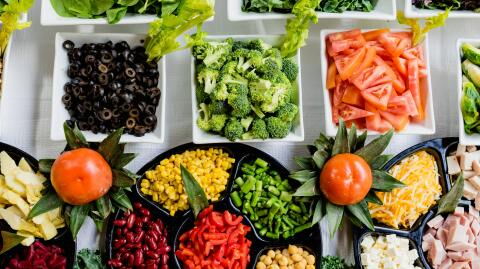Sugar constitutes a routine part of our diet and occurs naturally in many kinds of foods. According to Harvard Medical School, while consuming sugar by itself is not detrimental to health, the problem arises when a majority of our sugar intake comes from ‘added sugar’, also called refined or processed sugar.
Discover our latest podcast
Refined sugar might be sourced from nature, but these have been processed so much that they are left without any nutrients and various studies have shown that refined or processed sugars do not provide any health benefits to our body while being detrimental to the body when it is over-consumed.
As per the American HeartAssociation, women should consume a maximum of 25 gm of sugar per day, while the suggested limit of sugarconsumption for men is 37.5 grams. Too much sugar can lead to weight gain, heart diseases, problems insleeping, diabetes or high blood pressure. Here are some healthier replacements for refined sugar.

Stevia
Stevia has become a very popular refined sugar substitute, especially with dieticians and athletes, and for good reasons. It is a natural sweetener which comes from the plant stevia rebaudiana. Not only is it 100s of times sweeter than refined sugar, but it also aids in balancing blood sugar levels.
Raw Honey
Honey is another healthy substitute for processed sugar, but with a couple of caveats. First of all, ensure that the honey you buy is as unprocessed as possible. Very often, industrially manufactured honey is mixed with copious amounts of processed sugar, which is not the case for organic or raw honey.

Maple Syrup
The above caveat regarding avoiding industrial honey can also be applied to maple syrup. Ensure that your maple syrup is organic and unprocessed. Maple syrup also contains calcium, magnesium and potassium while having anti-inflammatory properties.
Jaggery
Jaggery is what you get after sugarcane juice have been evaporated of all its liquid, leaving behind the sugar. This then goes on to be processed as refined sugar. Not only is jaggery less in calories than refined sugar, it also has antioxidants and aids in digestion.
Lastly, while it is always beneficial to reduce your consumption of sugar, it should not lead to an unhealthy or obsessively avoidant relationship with sugar or sweet foods. The key here is moderation in consumption, while not denying yourself a sweet treat every now and then.
Read more:
⋙ Five sugar heavy fruits you should watch out for
⋙ The shocking effect sugar can really have on your skin
⋙ Artificial sweeteners: Are sugar substitutes good for your health?















